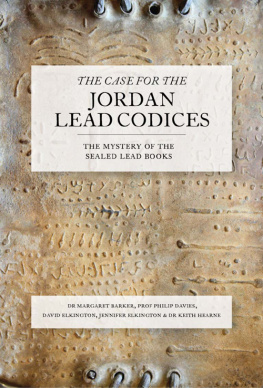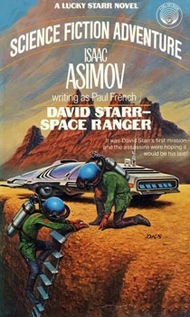David Starr Jordan - The Philosophy of Despair
Here you can read online David Starr Jordan - The Philosophy of Despair full text of the book (entire story) in english for free. Download pdf and epub, get meaning, cover and reviews about this ebook. year: 2010, genre: Science. Description of the work, (preface) as well as reviews are available. Best literature library LitArk.com created for fans of good reading and offers a wide selection of genres:
Romance novel
Science fiction
Adventure
Detective
Science
History
Home and family
Prose
Art
Politics
Computer
Non-fiction
Religion
Business
Children
Humor
Choose a favorite category and find really read worthwhile books. Enjoy immersion in the world of imagination, feel the emotions of the characters or learn something new for yourself, make an fascinating discovery.
- Book:The Philosophy of Despair
- Author:
- Genre:
- Year:2010
- Rating:4 / 5
- Favourites:Add to favourites
- Your mark:
- 80
- 1
- 2
- 3
- 4
- 5
The Philosophy of Despair: summary, description and annotation
We offer to read an annotation, description, summary or preface (depends on what the author of the book "The Philosophy of Despair" wrote himself). If you haven't found the necessary information about the book — write in the comments, we will try to find it.
The Philosophy of Despair — read online for free the complete book (whole text) full work
Below is the text of the book, divided by pages. System saving the place of the last page read, allows you to conveniently read the book "The Philosophy of Despair" online for free, without having to search again every time where you left off. Put a bookmark, and you can go to the page where you finished reading at any time.
Font size:
Interval:
Bookmark:
Project Gutenberg's The Philosophy of Despair, by David Starr Jordan
This eBook is for the use of anyone anywhere at no cost and with
almost no restrictions whatsoever. You may copy it, give it away or
re-use it under the terms of the Project Gutenberg License included
with this eBook or online at www.gutenberg.net
Title: The Philosophy of Despair
Author: David Starr Jordan
Posting Date: September 4, 2009 [EBook #4754]
Release Date: December, 2003
First Posted: March 12, 2002
Language: English
*** START OF THIS PROJECT GUTENBERG EBOOK THE PHILOSOPHY OF DESPAIR ***
Produced by David A. Schwan. HTML version by Al Haines.
John Maxson Stillman
In Token of Good Cheer
A darkening sky and a whitening sea,
And the wind in the palm trees tall;
Soon or late comes a call for me,
Down from the mountain or up from the sea,
Then let me lie where I fall.
And a friend may writefor friends there be,
On a stone from the gray sea wall,
"Jungle and town and reef and sea
I loved God's Earth and His Earth loved me,
Taken for all in all."
Today is your day and mine, the only day we have, the day in which we play our part. What our part may signify in the great whole, we may not understand, but we are here to play it, and now is our time. This we know, it is a part of action, not of whining. It is a part of love, not cynicism. It is for us to express love in terms of human helpfulness. This we know, for we have learned from sad experience that any other course of life leads toward decay and waste.
From Fitzgerald's exquisite version of the Rubiyt of Omar Khayym, I take the following quatrains which may serve as a text for what I have to say:
So when the angel of the darker Drink
At last shall find you by the river-brink,
And offering you his cup, invite your Soul
Forth to your lips to quaff, you shall not shrink.
Why, if the soul can fling the Dust aside,
And naked on the air of Heaven ride,
Wert not a shamewert not a shame for him
In this clay carcase crippled to abide?
'Tis but a tent where takes his one-day's rest
A Sultan to the realm of Death addrest;
The Sultan rises, and the dark Ferrsh
Strikes, and prepares it for another guest.
And fear not lest Existence, closing your
Account, and mine, shall know the like no more;
The Eternal Ski from that bowl hath pour'd
Millions of bubbles like us, and will pour.
When you and I behind the veil are past,
Oh, but the long, long while the world shall last,
Which of our coming and departure heeds
As the Sev'n Seas shall heed a pebble-cast.
A moment's halta momentary taste
Of Being from the Well amid the waste,
And lo!the phantom caravan has reach'd
The Nothing it set out fromO, make haste!
* * *
There was the door to which I found no key;
There was the veil through which I could not see:
Some little talk awhile of Me and Thee
There wasand then no more of Thee and Me.
* * *
Why, all the Saints and Sages who discuss'd
Of the two worlds so learnedly are thrust
Like foolish prophets forth; their words to scorn
Are scatter'd and their mouths are stopt with dust.
With them the seed of wisdom did I sow,
And with my own hand wrought to make it grow
And this was all the harvest that I reap'd
"I come like water, and like wind I go."
* * *
Ah Love, could thou and I with Him conspire
To grasp this sorry scheme of Things entire,
Would we not shatter it to bitsand then
Re-mould it nearer to the heart's desire!
Yon rising Moon that looks for us again
How oft hereafter will she wax and wane;
How oft hereafter rising look for us
Through this same gardenand for one in vain!
And when like her, O Ski, you shall pass
Among the guests, star-scattered on the grass,
And in your blissful errand reach the spot
Where I made oneturn down an empty glass!
* * *
And, again, in another poem from Carmen Silva's Roumanian folk-songs:
Hopeless.
Into the mist I gazed, and fear came on me,
Then said the mist: "I weep for the lost sun."
We sat beneath our tent;
Then he that hath no hope drew near us there,
And sat him down by us.
We asked him: "Hast thou seen the plains, the mountains?"
And he made answer: "I have seen them all."
And then his cloak he showed us, and his shirt,
Torn was the shirt, there, close above the heart,
Pierced was the breast, there, close above the heart
The heart was gone.
And yet he trembled not, the while we looked,
And sought the heart, the heart that was not there.
He let us look. And he that had no hope
Smiled, that we grew so pale, and sang us songs.
Then we did envy him, that he could sing
Without a heart to suffer what he sang.
And when he went, he cast his cloak about him,
And those that met him, they could never guess
How that his shirt was torn about the heart,
And that his breast was pierced above the heart,
And that the heart was gone.
I gazed into the mist, and fear came on me,
Then said the mist: "I weep for the lost sun."
This poem of Omar and of Fitzgerald is perhaps our best expression of the sadness and the grandeur of insoluble problems. It is the sweetness of philosophical sorrow which has no kinship with misery or distress. In the strains of the saddest music the soul finds the keenest delight. The same sweet, sorrowful pleasure is felt in the play of the mind about the riddles which it cannot solve.
In the presence of the infinite problem of life, the voice of Science is dumb, for Science is the cordinate and corrected expression of human experience, and human experience must stop with the limitations of human life. Man was not present "When the foundations of the Earth were laid," and beyond the certainty that they were laid in wisdom and power, man can say little about them. Man finds in the economy of nature "no trace of a beginning; no prospect of an end!" He may feel sure, with Hutton, that "time is as long as space is wide." But he cannot conceive of space as actually without limit, nor can he imagine any limiting conditions. He cannot think of a period before time began, nor of a state in which time shall be no more. The mind fails before the idea of time's eternal continuity. So time becomes to man merely the sequence of the earthly events in which he and his ancestors have taken part. Even thus limited it is sadly immortal, while man's stay on the earth is but of "few days and full of trouble." "Oh, but the long, long while this world shall last!" or as the grim humorist puts it, "we shall be a long time dead."
Though the meaning of time, space, existence lies beyond our reach, yet some sort of solution of the infinite problem the human heart demands. We find in life a power for action, limited though this power may be. Life is action, and action is impossible if devoid of motive or hope.
It is my purpose here to indicate some part of the answer of Science to the Philosophy of Despair. Direct reply Science has none. We cannot argue against a singer or a poet. The poet sings of what he feels, but Science speaks only of what we know. We feel infinity, but we cannot know it, for to the highest human wisdom the ultimate truths of the universe are no nearer than to the child. Science knows no ultimate truths. These are beyond the reach of man, and all that man knows must be stated in terms of his experience. But as to human experience and conduct, Science has a word to say.
Therefore Science can speak of the causes and results of Pessimism. It can touch the practical side of the riddle of life by asking certain questions, the answers to which lie within the province of human experience. Among these are the following:
Font size:
Interval:
Bookmark:
Similar books «The Philosophy of Despair»
Look at similar books to The Philosophy of Despair. We have selected literature similar in name and meaning in the hope of providing readers with more options to find new, interesting, not yet read works.
Discussion, reviews of the book The Philosophy of Despair and just readers' own opinions. Leave your comments, write what you think about the work, its meaning or the main characters. Specify what exactly you liked and what you didn't like, and why you think so.










